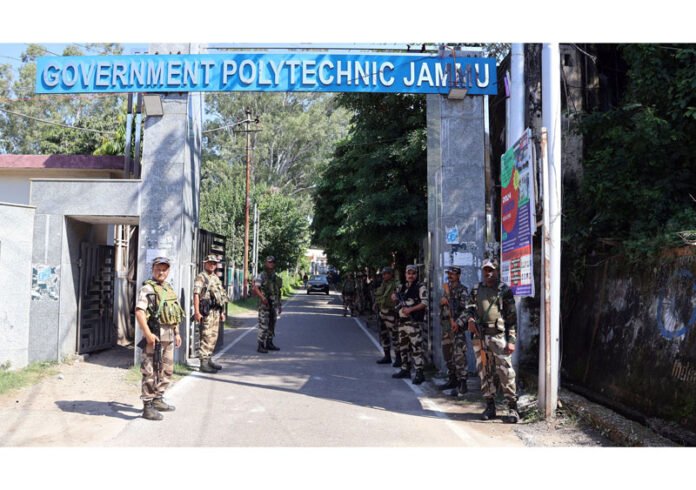Jammu and Kashmir is set to witness a significant political shift as the counting of votes for the Assembly elections in all 20 districts begins today at 7 AM. By evening, if all goes as planned, the results of all 90 constituencies will be announced. This will mark the first time since June 2018 that Jammu and Kashmir will have a fully elected Legislative Assembly.
A total of 873 candidates contested in these elections, with approximately 40% of them running as Independents. The remaining candidates were fielded by major political parties such as the BJP, National Conference (NC), Congress, PDP, Bahujan Samaj Party (BSP), Jammu and Kashmir Apni Party, People’s Conference, Awami Itehad Party (AIP), Panthers Party, and others.
This election is historic as it is the first assembly election after the bifurcation of Jammu and Kashmir into two Union Territories—Jammu & Kashmir and Ladakh—in 2019, following the abrogation of Article 370. The last time J&K had an elected government was under Mehbooba Mufti, whose PDP-BJP coalition government collapsed in June 2018 after BJP withdrew its support.
BJP Forms Election Monitoring Team
The BJP has formed a five-member team to monitor the election trends and political situation. The group includes senior leaders like BJP Election Incharge Ram Madhav, Tarun Chugh, party general secretary Incharge J&K Ashok Koul, Sunil Sharma (former Minister), and Devender Singh Rana. They will be camping in Srinagar today before proceeding to Jammu.
Key Contestants and Tight Security
Many prominent figures, including former ministers, legislators, and government officials, are in the fray, especially in the Jammu division’s 43 seats. To ensure the counting process is smooth and transparent, Chief Electoral Officer (CEO) PK Pole confirmed that CCTVs have been installed in every counting hall. Counting will begin with postal ballots at 7:30 AM, followed by the Electronic Voting Machines (EVMs) at 8 AM.
“Elections were conducted peacefully with significant public participation, and no political party faced any major hurdles,” said Pole. He added that 28 counting centres have been set up across Jammu and Kashmir, with two centres each in Kupwara, Samba, Jammu, Udhampur, and Reasi districts. Migrant votes will be counted at three separate centres.
Strict Security Measures in Place
Security has been tightened around all counting centres, with checkpoints established within a 100-meter radius. The opening of strong rooms, where EVMs are stored, will be done in the presence of candidates, their representatives, and Election Commission of India (ECI) observers. The process will also be videographed for transparency, and mobile phones will not be allowed inside the centres.
Local Deputy Commissioners have imposed restrictions around the counting centres to ensure smooth proceedings. Counting observers have been appointed to monitor the process, and officials are hopeful that all results will be declared by the evening.
Road Ahead for Government Formation
After the results are announced, political parties will initiate discussions for forming a new government. The majority mark for the 90-member Legislative Assembly is 48, as the five nominated MLAs by the Lieutenant Governor will also have voting rights, bringing the total strength of the House to 95.
The BJP contested 61 seats, including all 43 in the Jammu division, while the Congress-NC alliance fielded candidates on 31 and 52 seats respectively, along with friendly contests in five constituencies. Other parties, including the PDP and BSP, also fielded candidates in most constituencies.
In the 2014 Assembly elections, the PDP emerged as the largest party with 28 seats, followed by the BJP with 25, NC with 15, Congress with 12, and others securing the remaining seats. The political landscape has changed significantly since then, and all eyes are on today’s results to see who will form the next government in Jammu and Kashmir.

